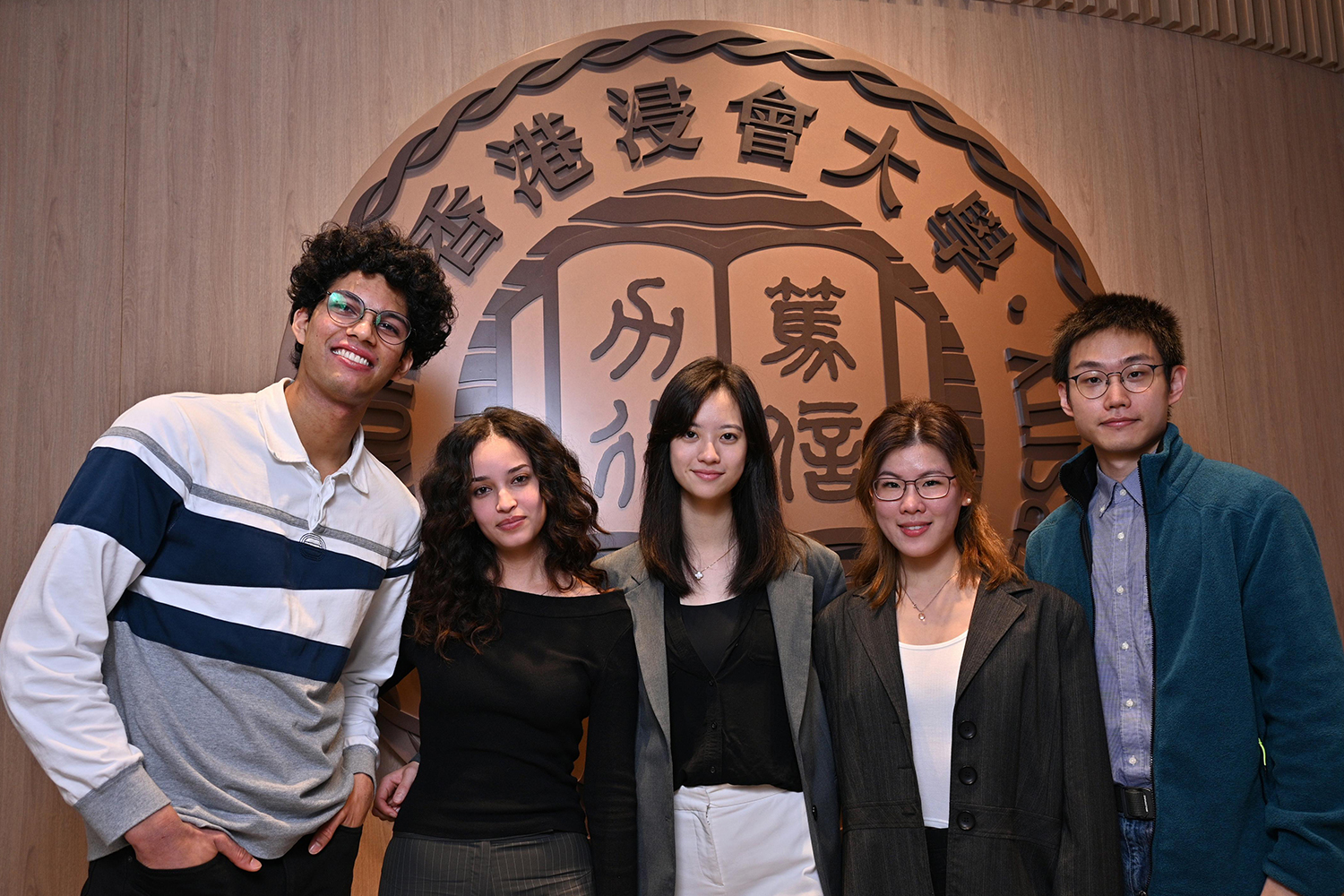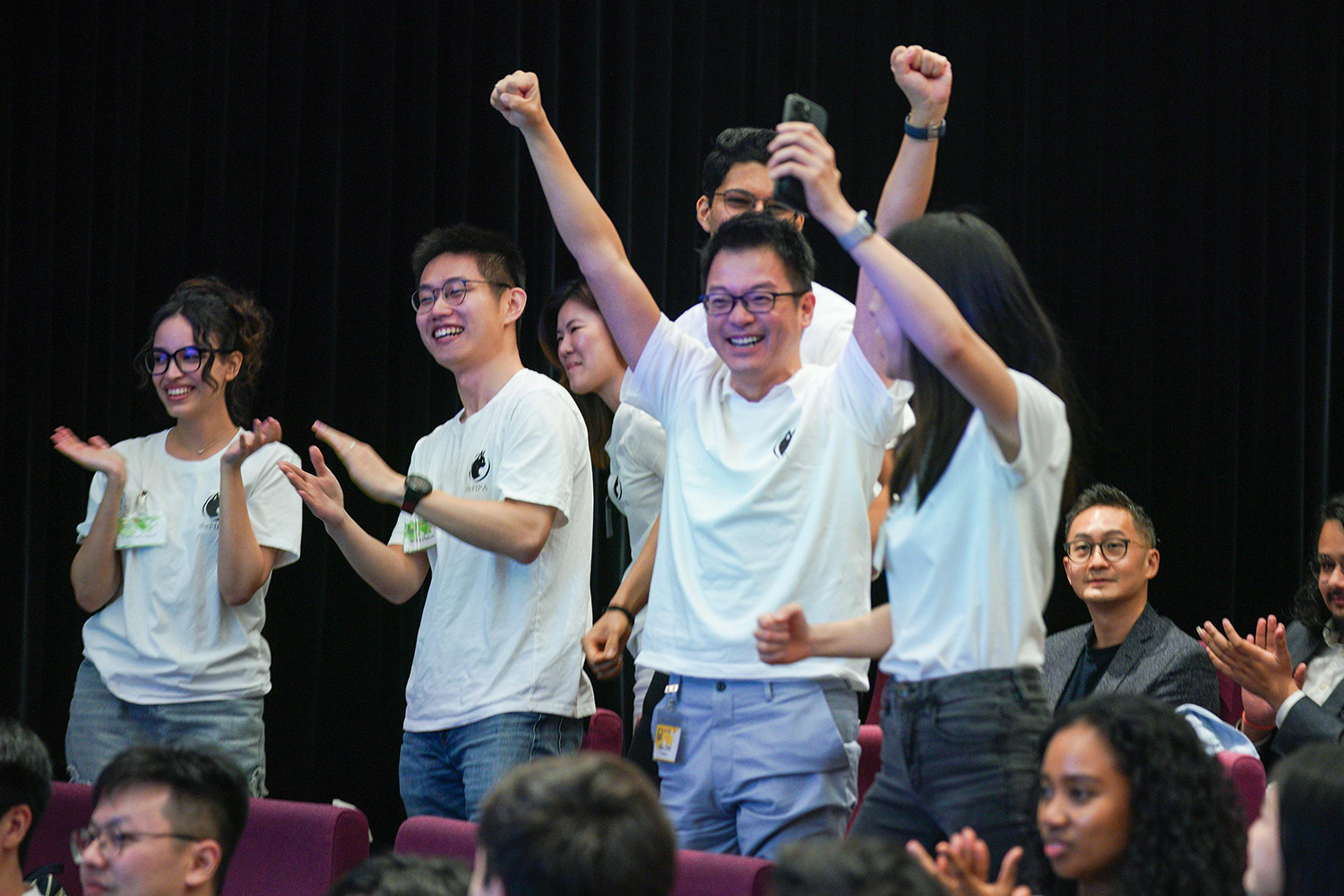Discover HKBU
Transdisciplinary team triumphs in Dean's Cup BIG 9.0 with innovative tool for feline health
30 Aug 2024


With a growing pet ownership and rising awareness about pet-friendliness in Hong Kong, it is crucial for owners to keep their pets healthy. Against this backdrop, a group of young entrepreneurs from HKBU dedicated themselves to leveraging technology to safeguard feline health.
Comprising Chinese Medicine, Science and Business students, the team “FIP Analyzer (theFIPA)” developed an online diagnostic algorithm for Feline Infectious Peritonitis (FIP), a disease known for its difficulty to diagnose.
The idea to develop this algorithm was born out of a personal struggle – when founder Tracy Chan Chin-hei’s cat contracted FIP. A student from the Bachelor of Pharmacy (Hons) in Chinese Medicine, Tracy realised the limitations in diagnostic process and treatment options. The cat owner’s determination to save her cat ignited the spark for theFIPA.
“When my cat, who is like a son to me, was diagnosed with FIP – a severe and often fatal disease – I was overwhelmed with panic and frustration," Tracy recalled. “It’s always hard facing challenges head-on, yet looking back, we understand their meaning and value," she said.
The team developed an at-home online kit to simplify FIP detection, enhancing the accuracy and efficiency for diagnosis. Neo Chen Chao-yan, a Master of Science graduate in Data Analytics and Artificial Intelligence, helped manage the data and train the model to predict FIP in cats, achieving over 95% accuracy and precision. He also deployed the model on Microsoft Azure, simplifying the process for users to input blood test reports for FIP diagnosis. This ensures timely veterinary care, while reducing the burden for both veterinarians and cat owners.
With this diagnostic algorithm, the team triumphed in Dean's Cup Business Innovation Gymnasium (BIG) 9.0 Grand Final, securing a cash prize of HK$12,000. They are also set to represent HKBU in the upcoming Web Summit in Portugal.


When asked about the formation of the team, Business student Imane Malki said it was “united by chance”, calling it “a testament to the power of networking”. The reason behind this is simple: none of the five team members knew each other beforehand. It was Tracy who connected these students from diverse backgrounds to co-found the team, but this unexpected blend of expertise has become their greatest asset.
In hindsight, in any transdisciplinary collaboration, communication – jargon and terminology to be precise – could pose an initial challenge. Given each field has its specialised language, the team went the extra mile to mitigate any potential misunderstandings. When Tracy presented her vision and idea, the tech team had to translate them into concrete features. Together with the entrepreneurial mindset and work in web development from Vishal Ginni, who is pursuing a BSc (Hons.) in Mathematics and Statistics, as well as the crucial support in identifying potential threats and opportunities by Carol Li Yuk-yan, a BBA graduate with a focus on Information Systems and Entrepreneurship, the team members’ patience and adaptability allowed them to coordinate their efforts across their transdisciplinary expertise and time zones.
Currently, theFIPA is in its Beta Testing phase, partnering with a local veterinary clinic to refine the diagnostic tools. Once they establish a foothold in the market, the five-strong team plans to expand their diagnostic algorithm to encompass a wider range of animal diseases. “Our long-term vision extends beyond FIP and cats,” the team staunchly pledged.

